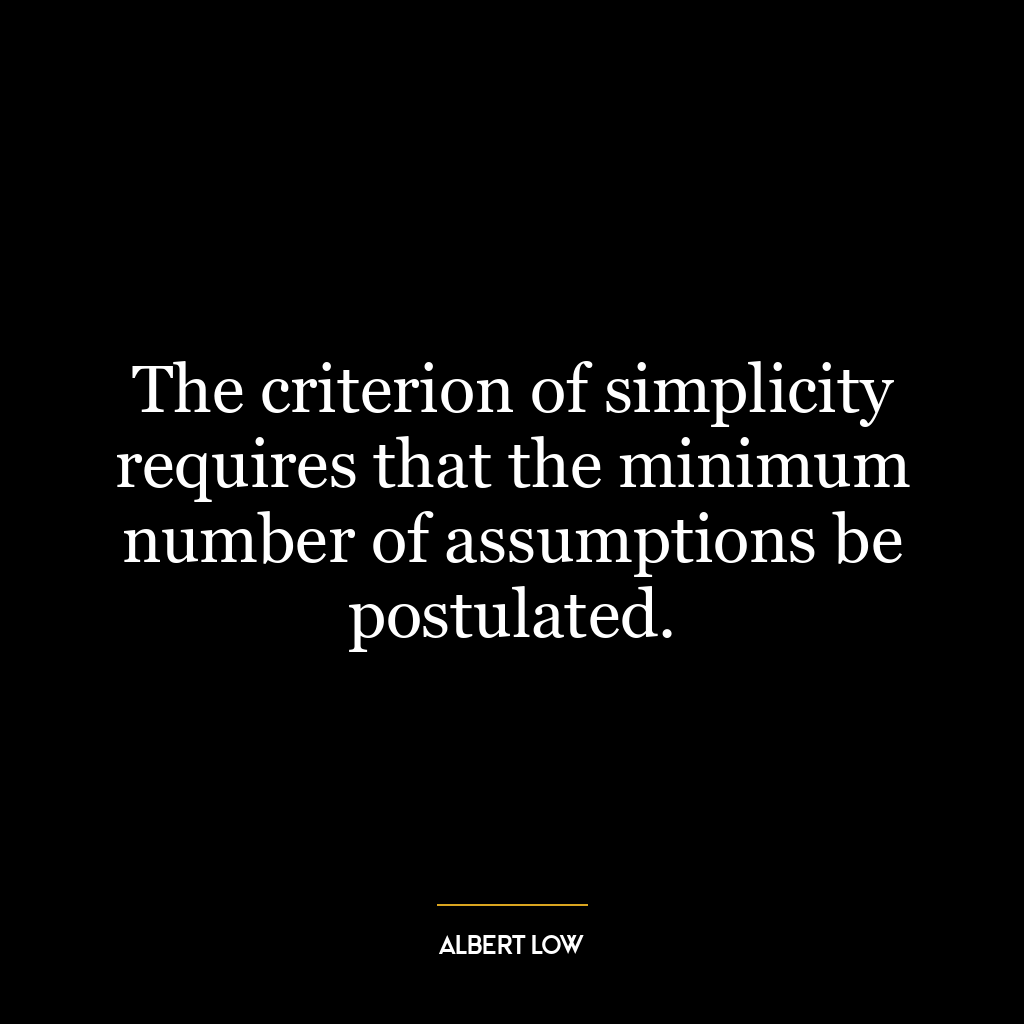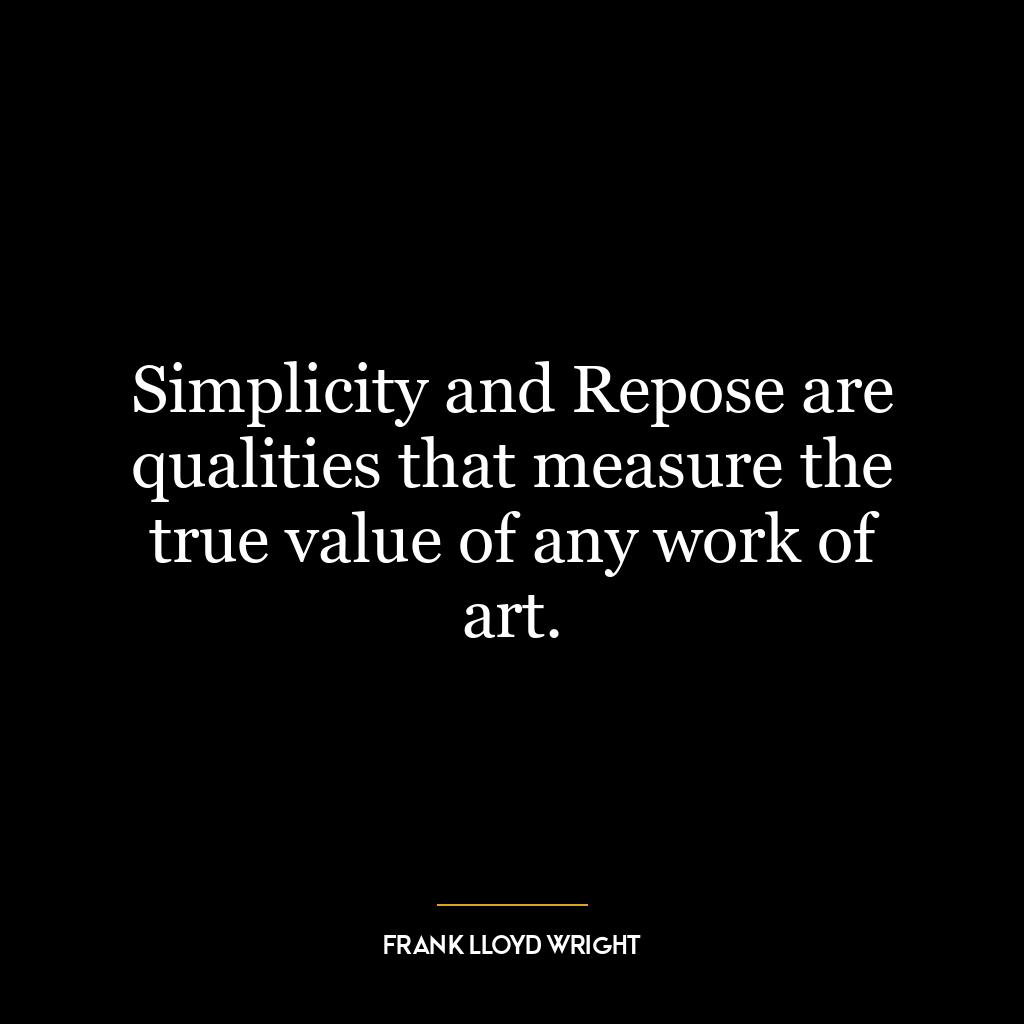The criterion of simplicity requires that the minimum number of assumptions be postulated.
This quote essentially refers to the principle of Occam’s razor, a philosophical and scientific rule that suggests the simplest explanation or theory is often the best one. In other words, when faced with competing hypotheses that explain certain data or phenomena, one should select the solution with the fewest assumptions.
This principle is crucial in scientific research, where it is often used to guide the development of theoretical models. If two models can both accurately predict a phenomenon, but one does so with fewer assumptions, that model is preferred. This approach helps to avoid over-complication and unnecessary complexity, which can lead to confusion and misinterpretation.
Applying this principle to personal development, it encourages us to simplify our thought processes and decision making. Often, we overthink situations or problems, creating unnecessary complexity and stress. By reducing the number of assumptions we make, we can make more clear-headed and effective decisions. For example, if we’re trying to understand why a friend behaved in a certain way, instead of concocting elaborate scenarios based on numerous assumptions, we can simply ask them. This approach reduces misunderstanding and promotes clearer communication.
In today’s world, the principle could be applied to tackle complex societal issues. Often, policies and solutions are laden with numerous assumptions and conditions, making them difficult to understand and implement. By striving for simplicity and minimizing assumptions, we can create more straightforward, effective solutions.
In the business world, this principle can help companies streamline operations and improve efficiency. Instead of making numerous assumptions about what customers want, businesses can directly ask for feedback and tailor their services accordingly. This approach can lead to better customer satisfaction and improved business performance.
In summary, the criterion of simplicity is a powerful tool that encourages clarity, efficiency, and effectiveness in both scientific research and everyday life. By minimizing assumptions, we can simplify our understanding of the world and make more informed, effective decisions.








